- Home
- Martin Cruz Smith
Tatiana Page 5
Tatiana Read online
Page 5
Arkady’s cell phone rang.
“Who is that?”
“Zhenya.” He looked at the phone and turned it off. He had to gird himself for a conversation with the most truculent boy on earth, so he stalled as usual. Between Anya and Zhenya, he didn’t think he could fight on two fronts at the same time.
Anya asked, “Are there any witnesses besides the girl with the cats? As I remember the buildings around Tatiana’s apartment were empty.”
“Nearly. You never know when someone will turn up, but you have to knock on doors. I don’t have enough men to do that and even if I did . . .”
“No one will talk to the police. After last week, who can blame them? Have you seen the editor, Obolensky? I thought he was pretty brave when the riot police attacked. Didn’t you think he was brave?”
“Very. Is he going to keep the journal going?”
“Of course.”
“As long as he has writers.”
“Yes. Why this sudden interest in Sergei Obolensky?”
Arkady rushed a bit, like a skater approaching thin ice. “I went to see him.”
“At his office?”
“I know he gave you Tatiana’s final notes for a glorious, going-down-in-flames sort of article. They also may be the notes that got her killed.”
“When were you going to tell me about this visit?”
“When were you going to tell me about the article?”
Arkady thought that the two demands had equal weight but she ignored logic. Instantly the bread was stale and the coffee cold. He never had been good at arguing with women; they tapped into pools of resentment over slights that had steeped for years.
She asked, “Do you have any idea how disrespectful that is? Do you have any idea how long it’s taken me to be accepted as a reporter? Or how humiliating it is to be ‘saved’ by a hero from the Prosecutor’s Office? And now you want me to turn down the most important article of my life?”
“I only meant that Tatiana’s notes might contain information that got her killed and it might be wise to let Victor and me go over them first.”
“Sergei gave me the notes on the condition that I share them with no one.”
“At least tell me, was there any mention of Grisha Grigorenko?”
“I can’t tell you.”
“Or Kaliningrad?”
“Why Kaliningrad?”
“It just keeps popping up. I have no doubt that Sergei Obolensky is a great editor but there’s the possibility that he is also, let’s say, creative at the expense of his writers.”
Anya pushed herself away from the table. “I can take care of myself.”
“Like at the demonstration?”
“Maybe, but that’s my choice. It has nothing to do with you. You know, Arkady, if you wanted to be more involved in my life, you had your chance.”
That, Arkady thought, would silence any man.
• • •
The Cathedral of Christ the Redeemer was a copy of a church demolished by Stalin to make room for a statue of Lenin pointing to the future, only the statue was never erected and the Soviet future never arrived. The new cathedral was a white confection with golden onion domes. Grisha Grigorenko had contributed the cost of a dome and cashed in his investment with a funeral service fit for royalty.
Arkady preferred a smoky hole-in-the-wall sort of church with stooped priests whose beards touched the floor. Babushkas visited the chapels of their favorite saints, standing on tiptoe to kiss beloved books and icons. They bought thin candles for one, five or ten rubles depending on their length. Arkady thought if he lit a candle for everyone Grisha had wronged, the cathedral would burn down.
He could see why Maxim chose to meet at the cathedral; it was one of the few places that commanded a 360-degree view of the city. In other words, a person could see who was coming. Gypsies suckled babies at the door. Beggars demanded charity. Tourists were immobilized by their guidebooks while babushkas glided by on polishing rags wrapped around their feet. Icons of saints, prophets and apostles covered the walls, even the poorest in gold frames. Most of the figures offered a languid blessing and their flatness gave the impression of being inside a house of cards.
“Saint Pelagia. One of my favorite martyrs,” said Maxim. The poet nodded to the icon of a girl stoically on fire. “Martyred by being roasted in a bronze bull. Patron saint of chefs, or ought to be.”
“It sounds as if you know the saints intimately,” Arkady said.
“And sinners. I knew your father. What a son of a bitch he was.”
Arkady couldn’t disagree. His father had been an army officer who had never adjusted to peacetime. The last person Arkady wanted to talk about was his father.
Maxim moved along the wall. “Here is another favorite, Saint Phanourios. First beaten with stones, then stretched and flogged and put on the rack, crushed and burned with coals. Sounds like you.”
“I hope not.”
“You should take a good look at yourself sometime.”
Maxim himself deserved more than a glance. As a boy Arkady had devoured adventure stories set in the Wild West. That the authors had never been to America bothered him not in the least, and Maxim, with his narrow eyes, buckskin jacket and ponytail, had a wolfish charm. Two of the floor polishers stared at him and whispered behind their hands as if they were teenage girls.
“This is a little public,” Arkady said.
“Oh, nobody pays attention. They’re all in their own world, thinking deep religious thoughts. The church is a dead telephone; even though people know better, they pick it up and listen. Have you been listening?”
Arkady wondered whether Maxim was referring to the cassettes of Tatiana that he had been listening to late into the night, until Maxim added, “The acoustics of a church like this can carry whispers through the air.”
“That’s very poetic. What did you want to talk about?”
“Look at the murals here. All that swirling; Botticelli with a beach towel. I understand you were at Grisha Grigorenko’s funeral service.”
“Yes.”
“That was the same day as the rally for Tatiana Petrovna.”
“It was a busy day.”
“Where I rescued you, remember?”
“I remember and I thank you again.”
Chinese tourists streamed into the church and set off rounds of echoes. Men and women, they all had the same enthusiasm and all wore the same crushable hats.
“Have they located her body?” Maxim asked.
“Not that I know of.”
“Obolensky called and asked if I would write a poem about the police and the rally. Since I was there, perfectly placed. Serendipity, you could say.”
“For his magazine?”
“For a special Tatiana Petrovna issue of Now. I understand that your friend Anya will contribute an article based on notes that Tatiana acquired.”
“Who else did Obolensky tell?”
“No one. What do the notes say?”
“I don’t know.”
“But you saw them.”
“For a moment. And even if I knew, why would I tell you?”
“You owe me.”
“What possible interest can you have in Tatiana’s notes?”
“I’m interested in everything about Tatiana.”
“Why?”
“Because once upon a time I loved her.”
• • •
The ZIL was superannuated, but it had style. A silver chassis lashed with chrome, lots of chrome. Twin headlights that signified alertness, leather upholstery that offered comfort, tail fins that promised speed. A futuristic touch was a push-button transmission.
“They manufactured a total of ten ZILs in 1958. Of course, it swallows gas like a drunk, but a man who lets guilt ruin pleasure is the pincushion of fate. Go ahead, you drive.”
It was a rare experience. As Arkady edged into traffic on the Boulevard Ring, other cars—Mercedes, Porsches and especially Ladas—parted.
�
��You certainly make an impression in a car like this,” Arkady said.
“That’s the idea.”
The ZIL also afforded privacy. With the windows rolled up, all Arkady heard was the whisper of air-conditioning.
“You and Tatiana? No offense, but that seems, in terms of personality, a bit of a mismatch. Not to mention the fact that you’re thirty years older.”
“I know. No one knows better than me.”
“Where?”
“Sochi. The Black Sea Cultural Festival. I was doing readings. Tatiana was a student on holiday with friends. When they left early, she stayed. Some guys who were high on drugs tried to mug her. I chased them off. I bought her a drink, and she bought me a drink, and one thing led to another. By the time the festival ended, we were totally in love. Forever.
“In Moscow everything changed. Everybody needed her. She was involved in every cause. Palestinians, Africans, Cubans. Russians too, can’t forget reform in Russia. I was drowning and she was in her element. We both knew it. At the end, I didn’t think she even noticed I was gone. As a philosopher once said, ‘There’s no fool like an old fool.’ ”
They cruised by the art galleries and florist shops on the Boulevard Ring. Maxim rolled a cigarette. Arkady declined. More and more, the poet put Arkady in mind of a mountain man checking his line of traps.
“Why do you want the notes? Do you think you’re in them? It sounds like it’s been years since you and Tatiana saw each other. Why would she be writing about you now?”
“It was years, then I ran into her a month ago. And a couple of times after that. There’s just a chance that I would be mentioned.”
“If you were, so what?”
“Personal reasons.”
“That’s not good enough.”
“Okay. I’m up for an award in America. A lifetime achievement award.”
“What does that mean?”
“Basically, that you’re still alive. The dead do not qualify. Standards in the United States are low.”
“Then why do it?”
“The prize comes with money.”
“Even so.”
“Fifty thousand dollars.”
“Ah.”
“If the Americans hear that I’m involved somehow in a murder case, I can kiss the prize good-bye.”
“The person you should talk to is Obolensky. He’s the man with the notes.”
“Obolensky? When shrimp whistle. No, I’m talking about your friend Anya. I understand she has the notes. She’d let you see.”
“I doubt that. I don’t know that she’s even talking to me.”
“I’ve seen you two together. She was born to talk to you, like drops of water drilling through a stone. Drip, drip, drip. Drilling until there’s space for dynamite.”
They had made a circle back to Arkady’s Niva, which became smaller with the approach of the ZIL.
“A fantastic car,” Arkady said.
“And bulletproof. You’re in the illustrious company of presidents, despots and hero cosmonauts who have led parades.” Maxim handed Arkady a business card with the address and telephone number crossed out and a new phone number penciled in. “It would be even better to get a copy of the notes.”
“With Anya’s consent.”
Maxim said, “Any way you want to do it.”
• • •
When Arkady first met Zhenya, the boy was standing in the cold outside a children’s shelter. He was eight years old, stunted like a boy who pushed tubs in a coal mine and virtually mute. At seventeen, Zhenya seemed simply a larger version of himself. He was the ugly duckling that did not change into a swan and was self-effacing to the point of disappearing. Except in chess. In the confines of a chessboard he ruled and humiliated players whose ratings were far higher than his because he preferred cash to tournament trophies.
Arkady found Zhenya at a computer repair shop a block off the Arbat. Three technicians were at work, each surrounded by plastic trays of candy-colored diodes, miniature tools and flexible lights. Each also wore earphones connected to his separate world. Zhenya’s specialty was audio enhancement. Not music, just sound. A hookah bliss hung in the air.
The first man to notice Arkady was startled.
Zhenya pulled his earphones off. “It’s okay. He’s with me.” To Arkady he said, “What are you doing here?”
“Here? You called and left a message.” Arkady always felt on the defensive with Zhenya. “Besides, I wanted to thank you for the chocolate chess piece you brought when I was laid up. I should have thanked you before.”
“I didn’t have a card.”
“That’s okay. Since it was a chess piece, I took a wild guess.”
“Yeah.” Zhenya cleared his throat. “Speaking of chess, I made some decisions. I don’t think hustling chess is going to do it for me. There’s no money, not real money.”
“What about computers?”
“Hacking?”
“Try something legal.”
“Not a desk job. I’ve been sitting all my life. I’ve been playing chess since I was five years old. I mean, I’ve got to find a different route. Not this place.”
“So?” This was hopeful, a real conversation.
“I need your help.”
Arkady was way ahead. He was already figuring which university or technical institute Zhenya should apply to. How to use what influence he had. “Whatever you need, just tell me.”
“Great.” Zhenya dug into his backpack and presented Arkady with a folded letter.
“What is this?”
“Read it.”
Arkady skimmed the letter. He knew what it was.
“Parental permission,” Zhenya said. “I’m underage and you’re the closest thing to a father I have. I’m enlisting in the army.”
“No, you’re not.”
“I can wait seven months and do it by myself, but I’m ready now.”
“No.”
“You don’t think I would make a good soldier?”
Arkady thought Zhenya would make a good punching bag for soldiers.
“It’s not that.”
“You were in the army. Your father was a general. I read about him. He was a killer.”
“It’s a different army now.”
“You don’t think I can take the hazing?”
It was more than hazing, Arkady thought. It was a system of brutalization at the hands of drunken noncoms and officers. It was daily beatings with fists and chairs, standing naked in freezing weather and the least sign of intelligence stamped out. It was a system that produced soldiers who went AWOL, strung themselves up by their belts or traded their weapons for vodka.
“In seven months—”
“I wish your father was here,” Zhenya said. “He’d let me sign up.”
“Well he’s not here. He’s shoveling coals in hell. I’m not going to sign anything.”
Arkady tried to be calm and reasonable but he didn’t sound that way, even to himself. He sounded angry and frustrated. To hear his father invoked as a model was the last straw.
Zhenya said, “I’ve never asked you for anything. You always claim you want to help, but the first time I actually ask you to, you say no.”
Arkady looked for something to hit even though any dramatics would make him look ridiculous. He wasn’t Zhenya’s father, and that was the point, wasn’t it, to play him a fool for caring. For what, Arkady thought? If you put a snake in a jar, nine years later he will still be a snake. Zhenya deserved to be in the army. All the same, Arkady balled up the letter and dropped it in the basket.
“You can do better for yourself.”
Zhenya said, “Like you’re an example. At least the general was somebody.”
• • •
Memory was a loop of film that played over and over, each time a little different until frames overlapped. Furious at Zhenya, Arkady remembered a story about his own father sitting at a chessboard, joking, pretending that a glass of vodka was a piece in play. The general’s o
pponent was a captured German SS officer, not a bad player, but unfamiliar with the effects of vodka. He was incoherent by the time he lost and the general left him hanging from the gallows until his neck stretched like taffy.
7
Taking Victor to Tatiana’s apartment, Arkady drove by blocks of empty, toothless housing projects.
“Maybe you need backup?”
Victor said, “Nonsense. I’m looking for my pussy cat, Snowflake, last seen in the company of a woman about twenty years old, with short hair dyed yellow, possibly carrying a red suitcase.”
“That’s very sentimental.”
“It’s human nature,” Victor said. “People who wouldn’t give up Jack the Ripper are still suckers for pets. Cat people, especially.”
“Don’t you have cats?”
“Three, but they’re outdoor cats.”
“Feral?”
“Free range.”
Arkady looked around as they approached Tatiana’s building. This was the first time he’d seen the cul-de-sac in daylight, and he realized that once it must have been a pleasant neighborhood with benches for the elderly, monkey bars for kids, families instead of ghosts.
“On the other side of the back fence is a construction site where skinheads like to camp.”
“Good to know,” Victor said.
“Svetlana is the closest thing we have to a witness.”
“I know, I know. I’ll meet you at the Den.” The Den was a restaurant in back of police headquarters.
“Are you going to be okay?”
“I’m set,” Victor said, and shook his raincoat so that Arkady could hear the soda he carried in his pockets to cope with his thirst.
• • •
The clouds were spiked with lightning, much like Arkady’s personal life. He kept busy rather than think about Anya or Zhenya. He tried to reach Tatiana’s sister by phone. Her number had a 4012 area code. Kaliningrad. There was no answer and no message machine.
He cruised by “drops”—the underpasses, bus shelters and truck stops where prostitutes congregated. These were not the exotic models that crossed their legs in the plush lobbies of fine hotels and made assignations by cell phone. These were girls who were underage and underfed, wrapped in flimsy coats against the cold. At every drop he visited, they approached his car, inquiring as to his needs while a pimp hovered anxiously by. Little wonder that capitalism took so long to come to Russia. No one remembered a skinny girl and a white cat.

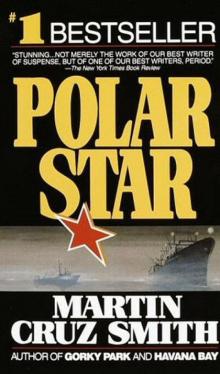 Polar Star
Polar Star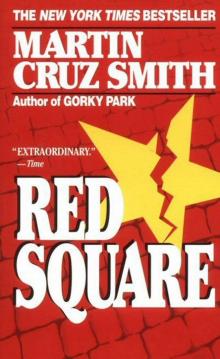 Red Square
Red Square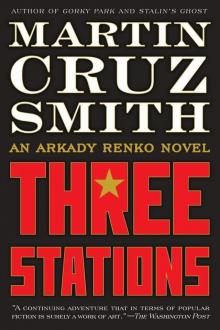 Three Stations
Three Stations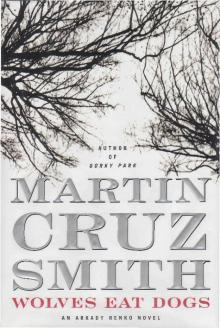 Wolves Eat Dogs
Wolves Eat Dogs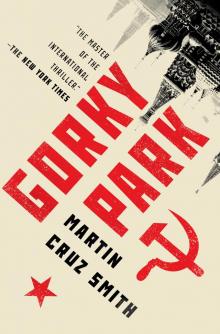 Gorky Park
Gorky Park December 6
December 6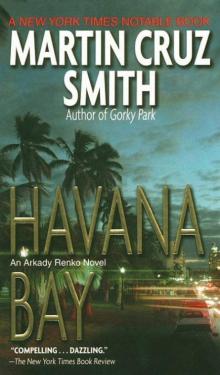 Havana Bay
Havana Bay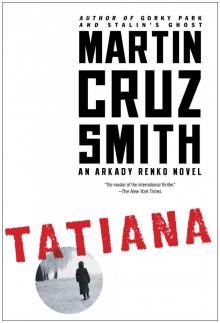 Tatiana
Tatiana The Girl From Venice
The Girl From Venice Stalin's Ghost
Stalin's Ghost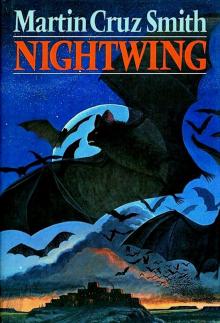 Nightwing
Nightwing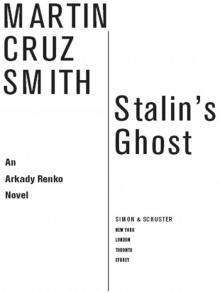 Stalin s Ghost
Stalin s Ghost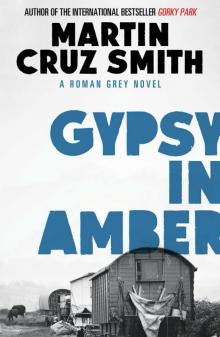 Gypsy in Amber
Gypsy in Amber Rose
Rose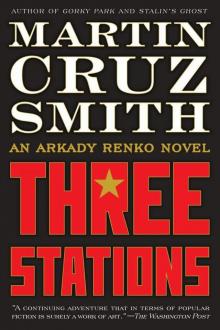 Three Stations: An Arkady Renko Novel
Three Stations: An Arkady Renko Novel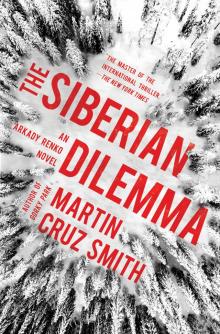 The Siberian Dilemma
The Siberian Dilemma December 6 (V5.0)
December 6 (V5.0)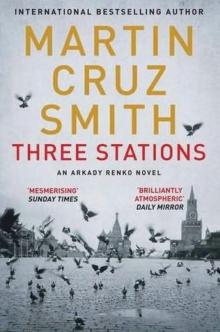 Three Stations ar-7
Three Stations ar-7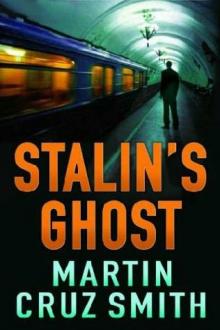 Stalin’s Ghost ar-6
Stalin’s Ghost ar-6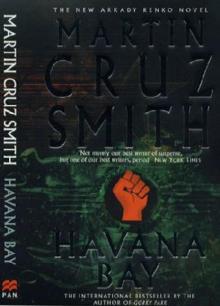 Havana Bay ar-4
Havana Bay ar-4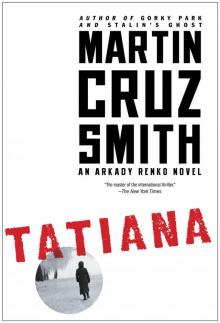 Tatiana ar-8
Tatiana ar-8